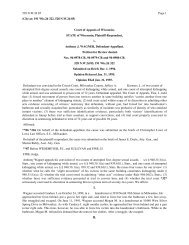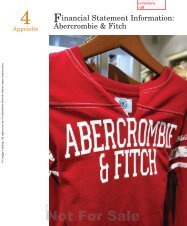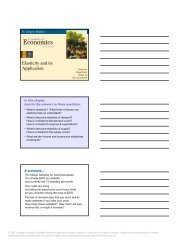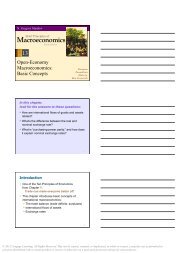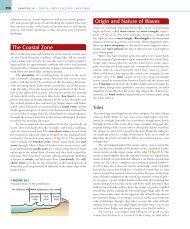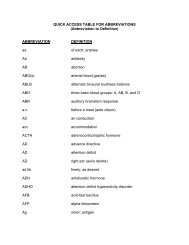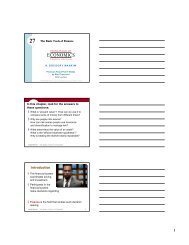United States v Gambino
United States v Gambino
United States v Gambino
You also want an ePaper? Increase the reach of your titles
YUMPU automatically turns print PDFs into web optimized ePapers that Google loves.
UNITED STATES V. GAMBINO<br />
<strong>United</strong> <strong>States</strong> Court of Appeals, Second Circuit<br />
566 F.2d 414 (2 nd Cir. 1977)<br />
The appellants, <strong>Gambino</strong> and Conti, were convicted of a number of offenses, including<br />
violations of the federal RICO statute.<br />
GURFEIN, Circuit Judge.<br />
... The appellants contend that there was insufficient evidence to prove a conspiracy to<br />
acquire and maintain control of the private sanitation industry in the Coop City area of the Bronx<br />
through a pattern of racketeering activity. They argue that there was insufficient evidence to<br />
warrant a conviction under Count Four, which charged that <strong>Gambino</strong> and Conti used threats and<br />
violence in order to collect an extension of credit for Peter Darminio. Specifically, they point to<br />
an alleged lack of corroboration of Darminio’s testimony.<br />
The general outline of the case indicates that <strong>Gambino</strong> and Conti had controlled certain stops<br />
for private garbage collection in the Bronx but were unable to get a carting license from the City.<br />
They arranged for Terminal Sanitation, a licensed private sanitation firm, owned by Peter and<br />
Anthony Darminio, to collect at all of the stops which <strong>Gambino</strong> had previously acquired in the<br />
Bronx. The Darminios were required to kick back to <strong>Gambino</strong> one-third of all the moneys they<br />
received from servicing the stops.<br />
[The trial court] ... found that <strong>Gambino</strong> and Conti maintained control of garbage collection in<br />
Coop City and other areas of the Bronx by threatening to kill competitors and by administering<br />
beatings. This activity included an assault on an undercover agent of the FBI who was posing as<br />
a cart man and who had solicited a stop in Coop City. [The trial court] also found that <strong>Gambino</strong><br />
engaged in extensive loansharking activities, lending a total of $90,000 to Peter and Anthony<br />
Darminio in 1970 and 1971 and $75,000 to Peter in 1972. These loans were collected by<br />
<strong>Gambino</strong> and Conti through the use of threats and violence.<br />
The court carefully reviewed the evidence. Ralph Torres, an employee of <strong>Gambino</strong> and<br />
Conti, was found to be a credible witness by ... [the trial court]. Although the credibility of Peter<br />
Darminio was in question, his testimony concerning the defendant’s extortionate extensions of<br />
credit was corroborated by an exhibit in evidence bearing <strong>Gambino</strong>’s handwriting, headed with<br />
the word “Peter” and containing a column of figures and certain calculations. [The trial court] ...<br />
further found that Conti, who was collecting the payments, threatened and beat Darminio from<br />
time to time when he was late in making payments.<br />
In July of 1973 one Bernard Ettinger, who had sold Terminal to the Darminios in 1968 and<br />
who had not been paid in full in connection with the sale, complained in writing to the New York<br />
City Department of Consumer Affairs, requesting that the Department see to it that the<br />
Darminios fulfilled their obligations to him before the department approved any sale of stops<br />
registered to Terminal. Shortly thereafter, Conti visited Ettinger at his office, slapped Mr.<br />
Ettinger on the face, and told him that he had better not complain to the department.
On an earlier occasion when Ettinger had threatened to foreclose on Anthony Darminio’s<br />
home, on which he held a mortgage, Mr. and Mrs. Darminio had asked Mr. <strong>Gambino</strong> for<br />
assistance, and <strong>Gambino</strong> replied, “Don’t worry about it. I’ll send Carlo Conti to straighten it<br />
out.” In 1974, Ettinger pressed Darminio for payment, which was then a balance of $90,000. A<br />
meeting was arranged. <strong>Gambino</strong> came with Darminio. <strong>Gambino</strong> said that if Ettinger would settle,<br />
Darminio could sell some stops and there would be some stops left over so that Peter Darminio<br />
could continue his route. Ettinger agreed to settle for $40,000. One Joseph Perillo, who was also<br />
present at the meeting, indicated that he was prepared to purchase some stops from Terminal but<br />
did not have money with him for a down payment. <strong>Gambino</strong> gave Perillo $5,000, which Perillo,<br />
in turn, gave to Ettinger. The court found Ettinger to be a highly credible witness.<br />
In November 1975, Terminal entered into a contract with P & S Sanitation, a newly<br />
organized company, to take over Terminal’s stops. The court found that <strong>Gambino</strong> was active in P<br />
& S. ...<br />
In the Fall of 1976, the FBI incorporated American Automated Refuse & Waste Removal,<br />
Inc., and set up an office in the Bronx. They bought trucks and a winch, the winch being shipped<br />
from Texas, and arranged to dump the garbage in New Jersey. They then began soliciting<br />
garbage collection accounts, including Harry’s Service Station which they knew was being<br />
serviced by P & S Sanitation. On December 1, 1976, Harry’s entered into an agreement with<br />
American Automated, the Government company. American Automated arranged to drop off a<br />
container at Harry’s to store garbage which would be collected by Automated. Shortly thereafter,<br />
Conti telephoned American Automated and came to the office. He threatened to kill the person<br />
seated at the desk, who called himself Wayne Dacon but who was in fact an agent of the FBI<br />
named Walter Wayne Orrell. Conti’s statement to Orrell included a threat to throw the agent out<br />
of the window. This conversation was tape-recorded and the tape was received in evidence.<br />
Conti indicated that anything new that opened up in Coop City was his. There were two places<br />
on the tape where a crunching sound was audible. Agent Orrell testified that Conti punched him.<br />
The evidence established that Conti acted frequently at the behest of <strong>Gambino</strong>, that both men<br />
conspired to acquire and maintain control of the private sanitation industry in Coop City and<br />
other areas of the Bronx through a pattern of racketeering activity and they in fact carried out the<br />
purpose of the conspiracy, that both men obstructed commerce by extorting payments from<br />
Terminal Sanitation and its principals, and that Conti attempted to obstruct commerce by<br />
assaulting and threatening to kill persons associated with American Automated, Inc.<br />
These findings ... cannot lightly be set aside. Nor do we see any reason for so doing. We hold<br />
that there was sufficient evidence to sustain the conviction. ...



